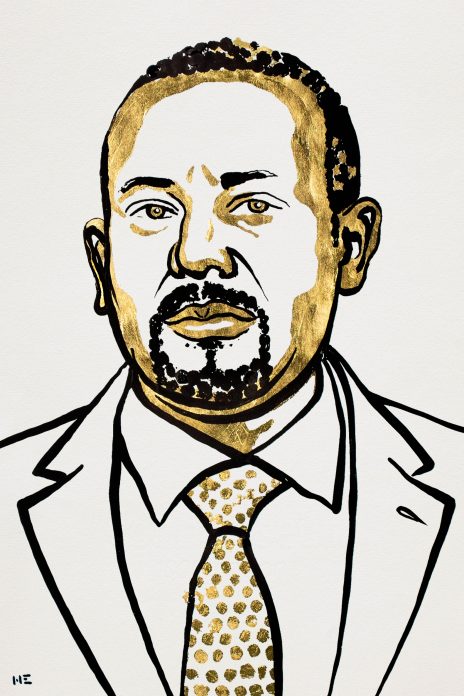 The 43-year-old Ethiopian Prime Minister Abiy Ahmed, the youngest African incumbent leader, has been awarded the 100th Nobel Peace Prize of 2019. The Nobel Committee announced Abiy has been selected "for his efforts to achieve peace and international cooperation, and in particular for his decisive initiative to resolve the border conflict with neighboring Eritrea."
The 43-year-old Ethiopian Prime Minister Abiy Ahmed, the youngest African incumbent leader, has been awarded the 100th Nobel Peace Prize of 2019. The Nobel Committee announced Abiy has been selected "for his efforts to achieve peace and international cooperation, and in particular for his decisive initiative to resolve the border conflict with neighboring Eritrea."
Abiy came to power in April 2018 after a series of protests in Ethiopia and has since embarked on a series of reforms. In his acceptance speech to the parliament and to the people of Ethiopia, he apologized for misdeeds of the administration of his party, which has been ruling Ethiopia since 1991, calling for unity and national integrity. His message of peace, hope, tolerance and brighter future gripped the imagination of the country, home to over a hundred million people, creating a sense of euphoria which some referred to as “Abiymania”.
Within three months of coming to power, Prime Minister Abiy brokered a peace deal with neighboring Eritrea, ending a stalemate that lasted for over twenty years, which replaced a bloody border conflict fought 1998-2000. He visited Asmara, embraced Eritrean President Isaias Afwerki, who has also been quick to reciprocate the gesture. Ethiopian and Eritrean families and kins who had lost all contact for two decades could now travel back and forth, as both nations stood in elation.
In other peace efforts in the region, Abiy helped mediate a maritime territory dispute between Kenya and Somalia. More recently, he played a pivotal role in efforts to bring together the leaders of Sudan and South Sudan for talks. In Sudan, he helped broker a political deal that halted a slide into violence after the fall of the veteran dictator Omar al-Bashir, while retaining many of the gains made by pro-democracy protesters.
In Ethiopia, he opened the prison gates wide, releasing tens of thousands of political prisoners, initiated the reform of repressive legislation that has been used to clamp down on free speech and decimate human rights monitoring, the Human Rights Watch observes, highlighting that he also invited members of formerly banned opposition groups and individuals home and publicly acknowledged past abuses. He even appointed a former opposition leader living in exile, Ms. Birtukan Midekssa, to chair the National Election Board. He filled half of his cabinet with women ministers, too.
Abiy Ahmed pioneered a sweeping set of economic reforms as well. The Ethiopian Government has announced plans to open up the market and lessen the state’s firm grip on the economy. Prime Minister Abiy formed a committee that he chairs himself to tackle the issue of ease of doing business, an index on which Ethiopia has shown dramatic improvement since he took office.
Many have described the awarding of the 2019 Nobel Peace Prize to Abiy Ahmed as well deserved, while some cautioned it may be a bit premature since most of the reform efforts of the Ethiopian leader still need to be realized.
Abiy Ahmed is the first Ethiopian to win the prize. The closest an Ethiopian has come to the Nobel Peace Prize was in 1963 when Emperor Haile Selassie was among those shortlisted for it.
Sources: The Nobel Prize, The Guardian, Al Jazeera, Human Rights Watch



